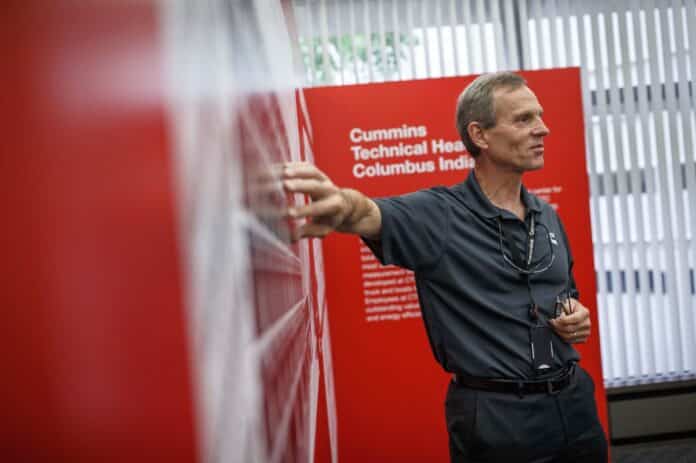
A Cummins Inc. official testified on Wednesday before a House subcommittee that is seeking to develop comprehensive legislation to drastically reduce U.S. greenhouse gas emissions by 2050.
Wayne Eckerle, vice president of global research and technology at Cummins Inc., urged members of the House Subcommittee on Environment and Climate Change to maintain regulatory certainty in the heavy duty transportation sector, increase economic incentives for investment in advanced energy technologies and increase funding for the research and development of advanced energy technologies.
“Commercial trucks haul as much as 80 percent of the goods transported in this country,” Eckerle told the subcommittee. “Although they only make up 4 percent of vehicles on the road, they use about 20 percent of the fuel consumed due to the large amount of work they do and the mass they carry. Increasing these vehicles’ efficiency will benefit our economy, but more importantly, it can significantly reduce the carbon emitted from internal combustion engines.”
The hearing, called “Building a 100 Percent Clean Economy: Solutions for Planes, Trains and Everything Beyond Automobiles,” was the fourth in a series of climate change hearings the subcommittee will hold to help devise comprehensive legislation to support the transition of the U.S. economy to net zero greenhouse gas emissions by 2050.
Eckerle testified that in many instances, it is possible to use a technology to substitute for diesle, but in some applications, “the best path forward is to focus on making diesel as clean and efficient as possible,” he said.
“This decade, the 4.9 million new-technology diesel trucks on America’s roads have avoided producing more than 26 million metric tons of NOx and 59 million metric tons of carbon dioxide,” Eckerle said. “ Currently, across the United States, more than 36 percent of all registered commercial trucks, classes 3-8, are of the newest near-zero generation diesels, and that number grows each year.”
Eckerle said Cummins is not done innovating to make diesel engines cleaner and more efficient.
“Federal investment in research and development, grant programs for adoption and tax incentives should be robust and consistent to help manufacturers plan. Innovation and product development do not happen overnight; policies need to provide certainty for investment cycles required for sustainable innovation in the commercial vehicle industry,” Eckerle said in a written statement.”
Eckerle was one of seven people who testified before the House subcommittee on Wednesday.
Representatives from environmental group Earthjustice, the Port of Seattle and the Northwest Seaport Alliance, Truck & Engine Manufacturers Association, among others, also provided testimony.
“Doing our part to address climate change and air emissions is part of our company’s mission to power a more prosperous world,” Eckerle said in his written statement. “We look forward to joining forces and innovating with the broader energy community toward a comprehensive solution by decarbonizing our primary energy sources.”
[sc:pullout-title pullout-title=”House Subcommittee on Environment and Climate Change” ][sc:pullout-text-begin]
Visit energycommerce.house.gov/subcommittees/environment-climate-change-116th-congress for more information about the House Subcommittee on Environment and Climate Change
[sc:pullout-text-end]




